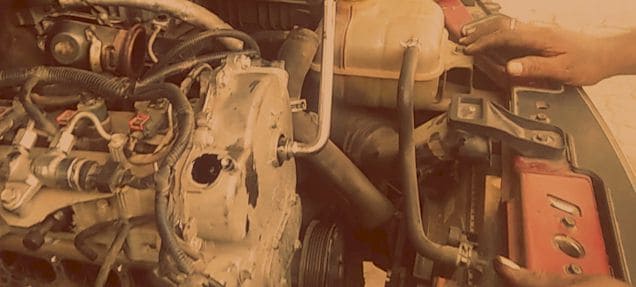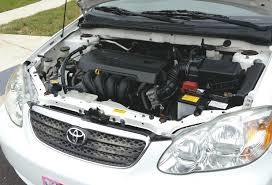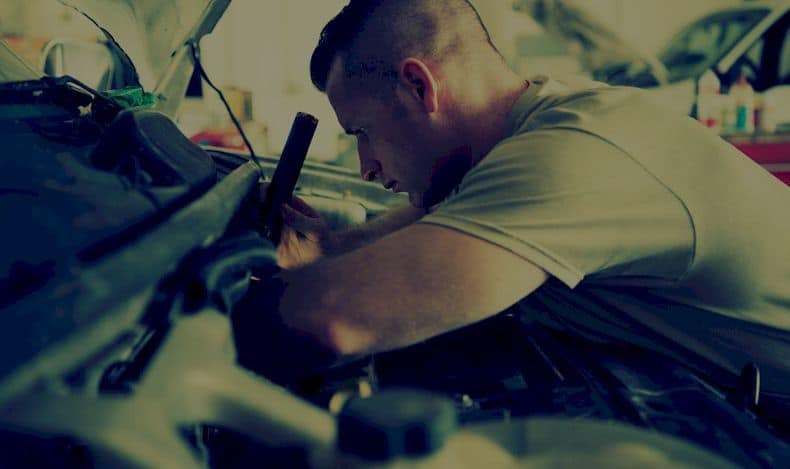It might have happened to you or to someone you know. The car air conditioner breaks down on a hot summer day when you need it the most. There might be some air blowing, but it's not cool enough. Worse, it might be blowing hot air instead of cold. Sometimes, the air coming out is weak. Worst, it may not be working at all.
Getting your car's air conditioning fixed is not just a matter of comfort. Being inside a car during a summer heat wave increases the risk of a heat stroke. Furthermore, a faulty car AC system might also be symptomatic of other problems in your car.
In this article, we look at common car air conditioner problems, the usual causes, and ways to diagnose them.
What about Car Air Conditioning
Before we begin, here are some basics of air conditioning (for us non-technical folks) to help us understand the basics of troubleshooting car air conditioning problems.
Just like any other air conditioning system, your car's AC system works by absorbing the heat from inside the car and transporting that heat to the external environment. Chemicals called refrigerants to travel through coils in an AC system absorbing heat from the cooled area then transferring that heat outside. The part where heat from the air is absorbed, i.e. cooled, is the evaporator. In a car, the evaporator is usually located behind the instrument panel from which blowers or fans spew cooled air through the grills.

The cold refrigerant vapor passes through a compressor which pressurizes and heats the refrigerant, then transfers it to the condenser. From the condenser, the heated refrigerant passes through an expansion valve into the evaporator where the cycle is repeated. In a car, the condenser is usually located behind the grill at the front, while the compressor is found under the hood in the engine bay.
Related: How to Purge the Air from the Heater Core
Now we go to the common causes of car AC trouble, its symptoms and diagnosing it.
Car AC Issues 1: Dirty Condenser
Due to its location at the front part of the engine, the condenser is prone to accumulation of sludge and debris. When this happens, the AC system will have a hard time cooling the refrigerant going into the compressor. Also due to its location, this is the easiest problem to spot.
Cleaning a dirty condenser may be as simple as hosing it with water, or you may also use a flushing chemical to clean it. Make sure to wear safety goggles and gloves when attempting to flush your condenser. Also read the safety instructions that come with the flushing chemical.

Car AC Issues 2: Moldy Evaporator
When unused for extended periods (such as during winter), molds and even bacteria can grow on the evaporator. Due to its relatively hidden location, it is an ideal spot for such organisms to grow. When this happens, cold air blown from the evaporator can have a rather nasty smell often compared to “gym locker” odors.
This problem can be solved by spraying cleaning chemical directly onto the evaporator or through the air intake or blower. You can also use a strong vacuum cleaner to suck out the accumulated contaminants on the evaporator. Some experts also advise turning on the air conditioner at full power every three weeks even during the cold months when it is not in use.
Car AC Issues 3: Leaking Refrigerant
Refrigerant leaks are the most common cause of car air conditioning problems. Whether it is from wear and tear or damage from debris or contaminants, leakages can develop anywhere in your car’s AC system. This would mean less of the chemical circulating in the cooling system.
The simplest and old fashioned way to detect a leak is by checking for oil stains or wet spots along the system. Another way is to pour a little soapy water and watch out for bubbles which would indicate a leak in that part of the system. Check hoses, fittings, and gaskets to check for any signs of loose connections or tear.
A more sophisticated way of finding leaks is through the use of a leak detection kit. These kits usually involve introducing ultraviolet dye into the system and using “black” or ultraviolet light to detect any leaks. Read instructions carefully on the use of these kits.
Also read, Troubles with Too Much Freon, Overcharged AC Symptoms
What To Do When Leaks Are Detected?
So your car air conditioning system has leaked. What should you do now?
The mere fact that you had to check for leaks means that your car AC has probably lost some refrigerant. Do-it-yourself recharging kits can be found in the market. Not everyone can use these kits properly. Assess yourself if you can. If you choose to do so, read the instructions carefully.
Once the refrigerant level has been replenished, ensure to fix the source of leaks by applying sealants or replacing worn out hose or fittings.
Leaks found on the condenser or evaporator itself might better be fixed by a professional mechanic. In any case when doing any DIY car air conditioner repair task, always remember to wear protective goggles and gloves.
Car AC Issues 4. Worn Out or Loose Belt
Check the belt on your car’s air conditioning compressor for any sign of serious wear and tear. The belt connects the compressor to the engine. If it is loose or worn out, it won't be able to turn the compressor.
Replacing the compressor belt can be easily done by some but not by everyone. Seek the help of an auto repair professional if necessary.
Car AC Issues 5: Bad Compressor
You may fail due to loss of lubrication resulting from blockages or leaks in the system, or faulty repairs and maintenance such as not using lubricants when recharging, or using the wrong lubricant type.
You will know that the compressor has failed when it fails to operate even when the magnetic clutch supplying power to the compressor is working but later won't.
You can replace your car’s air conditioning compressor, but it can be rather costly.
Want to know the Proper Auto A/C Vents Temperature.
Consult Your Car Manual
It’s always best to consult your car’s manual. Most manuals would list common problems you can encounter with your car’s AC system and recommended fixes.
In case you can't find your vehicle's manual anymore, many sites offer online manuals for a wide range of brands and models.
References:
Automobile air conditioning - wikipedia
Car's AC - liveabout
Car Air Conditioning Explained - autobutler
Why Use Car’s AC - familyhandyman
Simon graduated with a Mechanical and Electrical Engineering Degree. He has over 20 years of servicing experience in both Japanese and German car dealerships. He now acts as a freelance mechanic’s instructor for local schools.
